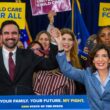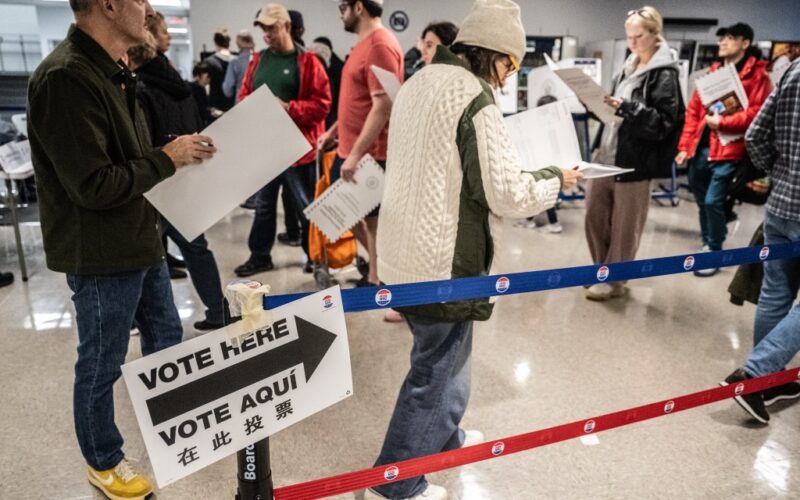This New York City election isn’t just another contest — it’s a generational-shift election. Decisions we make now will shape the next decade: who leads, what we prioritize, how inclusive our democracy is. Yet despite the stakes, NYC’s elections, with a closed partisan primary process, remain fundamentally broken.
Our current system, where only registered members of a political party can vote to choose that party’s general election nominee, leaves millions of New Yorkers voiceless — creating polarization and disenfranchisement. No wonder municipal primary elections typically have only about 25% turnout.
Even as New York is among the leaders of major cities in population growth since the pandemic, engagement in party primaries remains low. Our most recent primary election: 1.1 million voters cast ballots in a hotly contested campaign. Yet, this represents less than 30% of all registered voters in the city.
The electorate for primaries is still more ideological, partisan, older, and less representative of the city. In NYC, this has meant that recent leaders going for the top elected positions have been under-vetted — only building wider coalitions when forced by late campaign pressure and expediency.
According to the Bipartisan Policy Center, states with closed primaries — where unaffiliated voters cannot participate — see turnout among eligible voters as low as about 20%. Meanwhile, states that allow unaffiliated voters into primaries or use non-partisan or open systems register higher turnout — by as much as a 6 percentage point increase — and more representative electorates.
As we move toward the general election, chaotic attempts to force candidates to quit the race in the press and in back rooms — and high dissatisfaction in polling — prove the point. And the closed primary system is exacerbating early signs of larger, long-term challenges for our city and elections.
First, the obvious rise in political polarization has only made the need for broader participation more urgent. When only a small, ideological, partisan, temporarily-excited slice of voters decides our primaries, outcomes reflect the extremes more than the mainstream. Inclusivity matters.
Younger voters are registering as unaffiliated at higher rates, signaling a critical shift away from traditional parties. If we continue using a system that excludes these voters from the primary, we risk alienating a generation and cementing disengagement. Yes, younger Democrats turned out in record numbers in the June primary, but more than 500,000 young people were prohibited from voting because they are independents.
Combining higher participation with Ranked Choice Voting unlocks the promise that RCV was meant to deliver. RCV expands choice and rewards candidates who appeal broadly, not just to an extreme minority of the city, electorate, or the party itself. But when only 20-25% of party members vote, excluding independents and late-engaging voters, the outcome inevitably reflects a narrow base, not the broader city.
Finally, when a primary is closed, the general election often becomes perfunctory, competition is muted, and voters are shut out. Open primaries will strengthen competition and accountability in one-party dominant cities like New York — where the primary generally decides the entire election.
The city’s recent Charter Revision Commission report found that open primaries, “can turn elections that would have been decided in low-turnout primaries and bring them to the general election, decreasing the number of uncontested races.” In other words, expanding eligibility increases voter turnout, engagement, and trust.
So, what needs to happen? Unite NY and our partners are calling for moving New York City toward open primaries, where every registered voter — regardless of party affiliation — can participate. Making this reform in concert with RCV, ensures that the two systems reinforce each other.
This isn’t a debate about party labels. It’s about democracy, participation, representation, giving voters real power. A proper public education campaign would help the public understand what the goals are while still maintaining the party system.
The power to elect our leaders should not be easily returned to political bosses and party machines. Reforms must be embedded so that once the model is in place, closed systems cannot be easily reinstated by political bosses desperate to hang on to political power. The people are already there. Recent Unite NY research shows overwhelming support among New Yorkers for open primaries.
For New York to live up to its democratic promise — to reflect its diversity, engage its younger generation, draw new talent, and realize the full potential of ranked-choice voting — we must open our primaries. The future demands it. The moment demands it. New York City deserves it.
Byrd is the founder of Invest America and a board member at Unite NY.








